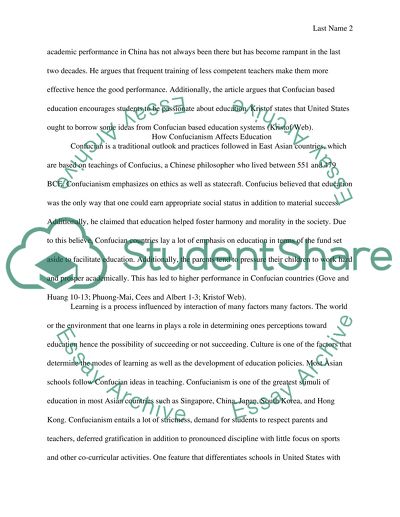Cite this document
(“Confucianism And Education In Asia Essay Example | Topics and Well Written Essays - 1750 words”, n.d.)
Confucianism And Education In Asia Essay Example | Topics and Well Written Essays - 1750 words. Retrieved from https://studentshare.org/education/1457938-confucianism-and-education-in-asia
Confucianism And Education In Asia Essay Example | Topics and Well Written Essays - 1750 words. Retrieved from https://studentshare.org/education/1457938-confucianism-and-education-in-asia
(Confucianism And Education In Asia Essay Example | Topics and Well Written Essays - 1750 Words)
Confucianism And Education In Asia Essay Example | Topics and Well Written Essays - 1750 Words. https://studentshare.org/education/1457938-confucianism-and-education-in-asia.
Confucianism And Education In Asia Essay Example | Topics and Well Written Essays - 1750 Words. https://studentshare.org/education/1457938-confucianism-and-education-in-asia.
“Confucianism And Education In Asia Essay Example | Topics and Well Written Essays - 1750 Words”, n.d. https://studentshare.org/education/1457938-confucianism-and-education-in-asia.


